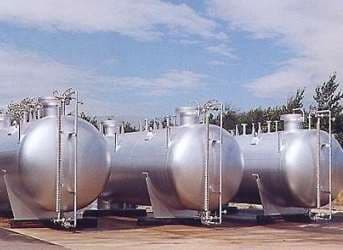Nigeria, already black Africa’s largest oil exporter, is thinking big, about exporting natural gas to Europe and thereby undercutting Brussels’ unhappy dependence on natgas exports from the Russian Federation.
According to the authoritative U.S. government’s Energy Information Administration, “Nigeria is the largest oil producer in Africa and was the world's fourth leading exporter of liquefied natural gas in 2012. Despite the relatively large volumes it produces, Nigeria's oil production is hampered by instability and supply disruptions, while the natural gas sector is restricted by the lack of infrastructure to monetize gas that is currently flared (burned off)… Nigeria flares the second largest amount of natural gas in the world, following Russia. Natural gas flared in Nigeria accounts for 10 percent of the total amount flared globally. Gas flaring in Nigeria has decreased in recent years, from 575 billion cubic feet in 2007 to 515 Bcf in 2011. There are a number of recently developed and upcoming natural gas projects that are focused on monetizing natural gas that is flared.”
The EIA estimate is too modest - the News Agency of Nigeria reports that Abuja is thinking big, and that the Nigerian government is backing the $20 billion Trans-Saharan project which, when completed will transport about 30 billion cubic meters of natural gas from Nigeria’s Warri region through Niger to North Africa’s Algeria northwards to Spain and Europe.
The only slight stumbling block on this grandiose scheme is cost, which is estimated at $20 billion. On 29 January Nigerian President Goodluck Jonathan announced in the Ethiopian capital Addis Ababa that Nigeria has mobilized $700 million to support the completion of the Nigeria-Algeria natural gas pipeline project. Jonathan told his audience, "We have raised $450 million in Eurobonds and an additional direct equity contribution of about $250 million in support of this project. The Nigerian National Petroleum Corp., which is the executor of this project has completed the concept design for the pipeline, which is an important milestone since I last provided an update on this project to the committee."
Which leaves the project nearly $19 billion short, and, if built, will become the world’s most expensive energy export project, dwarfing the $3.6 billion, one million bpd, 1,092-mile Baku-Tbilisi-Ceyhan pipeline, which ships 850,000 barrels per day of Azeri Caspian oil to Turkey’s deep-water Mediterranean Ceyhan port and which represents one of international investors’ most major energy commitments up to now.
While Brussels is anxious to diversify its natgas energy imports from the Russian Federation, a pipeline from Africa’s most corrupt hydrocarbon state through the militant-torn Magreb to southern Europe may seem a long shot at best.
The project has some major African backers. During a keynote address by African Union Commission chairman Nkosazana Dlamini Zuma at the African Mining Indaba Ministerial Symposium on 3 February in Cape Town Zuma stated, “…we should move away from building infrastructure only for one purpose, whether it is power generation and distribution capacity for a mine, whilst the communities and villages surrounding the mine are still in the dark. A good example is the new pipeline that transports gas between Nigeria and Algeria, where there are also plans for a Trans-Saharan highway on the same route.”
Other funding sources?
What is notable about the proposal is that not a single major European financial lending source has signed onboard as yet.
Accordingly, if Nigeria wishes this project to go forward, given its European end-user consumer interests, it must – a) begin to grapple with corruption in its energy sector and b) find a way to deal with its neighbors so as to pacify a transit route which would make such a massive investment less risky.
Analysts are doubtful that either of these developments will occur anytime soon, however enticing the concept.
By. John C.K. Daly of Oilprice.com



















A fine article. Thank you for this.
These African countries (Ghana, Benin, Mauritania, Senegal, Mali, Guinea, Sierra Leone, etc.) are dying to get Nigeria NG. Nigeria needs to gets its act together first to satisfy this regional market before thinking of Europe. NG price in Europe might be 4 to 5 times $4 Per Mscf, but the US$20 billion cost associated with this route/market will take decades to payout even assuming that the price will not fall, which is not a good assumption if one considers potential competition from Russia. This is Economics 101. Even market women, who sell basic day-to-day goods and services, do their calculations better than unfocused Nigerian government officials.
Check the following excellent article on the same issue: http://nigeriaworld.com/articles/2013/jun/101.html